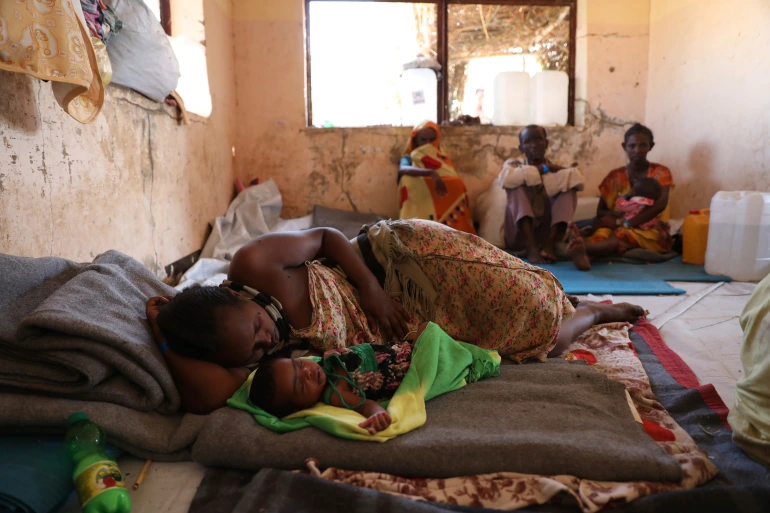Following a rare visit to the severely underdeveloped and war-torn province of Tigray, the envoys for the United States and the European Union in the Horn of Africa have urged Ethiopia’s government to resume vital services there.
Since Tigrayan rebels retook the country from federal forces in June 2021, it has been battling food shortages and a lack of access to essential services.
The Tigray People’s Liberation Front (TPLF) and the government of Prime Minister Abiy Ahmed have both discussed holding talks to end the horrific conflict, which started in late 2020.
Recently, there have also been increased diplomatic efforts, with new US and EU envoys Mike Hammer and Annette Weber traveling to Ethiopia to hold discussions with Debretsion Gebremichael, the leader of the TPLF.
The two envoys stated in a joint statement that “a fast restoration of electricity, telecom, banking, and other basic services in Tigray is crucial for the people of Tigray.”
“Equally, unhindered humanitarian access to Tigray and the nearby conflict-affected Afar and Amhara regions is essential, accompanied by the relaxation of restrictions on cash, gasoline, and fertilizer.”
The envoys added that Debretsion provided “security guarantees for those who need to work to restore services,” following his warning last week that Tigray would need to have important services restored before negotiations could begin.
With this assurance of security, they continued, “there should be no barrier for the start of service restoration.”
The ambassadors also asked the government to remove limitations on the delivery of money and fuel to Tigray as well as the neighboring, conflict-affected districts of Afar and Amhara.
The United Nations estimates that over 13 million people in northern Ethiopia require food assistance.
In Tigray, fighting broke out in November 2020, and has recently spread to the neighboring Amhara and Afar provinces.
However, since the federal government unilaterally proclaimed a humanitarian ceasefire in March, the conflict has partially subsided.
The three-person team’s attempt to look into violations committed in Tigray during the war coincided in part with the envoys’ travel to Ethiopia last week.
The commission was established by the UN Human Rights Council last December to look into claims of transgressions of international human rights, humanitarian, and refugee law.
Ethiopia initially opposed the commission’s formation, calling it “counter-productive,” but later agreed to allow it to enter the nation.
The committee ended its first trip to Ethiopia, according to a statement issued on Tuesday, and included meetings with the deputy prime minister, the minister of justice, and other top authorities.
The Commission asked for immediate, unrestricted access so that it may visit the scene and speak freely and discreetly with survivors, witnesses, and other potential sources of information.
According to the UN, millions of people have been displaced in the war-torn northern region of Tigray.
Prime Minister Ahmed is accused of seeking to consolidate authority at the expense of the provinces by the leaders of Tigray. He claims that they are seeking to reclaim the national power that they lost to him in 2018 when he was appointed prime minister.





